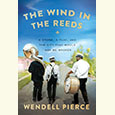Exquisite Conflict
Elizabeth Spencer explores the cost of family love
In her 1989 Paris Review interview, Elizabeth Spencer—asked about the influence of family in her life and work—said, “The family assigns unfair roles, and never forgives the one who does not fulfill them.” That line could serve as an epigraph for Starting Over, Spencer’s new collection of stories, many of which focus on the exquisite conflict between family loyalty and the longings of the individual heart. Spencer has published seven previous story collections, and she won the first of her five O. Henry prizes in 1960. She is, by any measure, a master of the form, and the stories in Starting Over show all the deftness and insight for which she has long been known.
.jpg) Spencer has a particular gift for capturing the uncomfortable mix of tenderness, anxiety, resentment, and bafflement that exists between parents and children. In “Sightings,” a divorced father greets the unexpected arrival of his teenage daughter with an ambivalence he’d rather not examine too closely: “It’s true they never saw much of each other. Maybe it was a shame. He was neutral on the subject.” Over the course of the story, the girl’s troublesome free-spiritedness awakens a memory of joy in the father that allows him—a man who lives “mostly happily in his own mind”—to feel undiluted parental love. In “The Everlasting Light,” a father weeps at the sight of his awkward daughter coming home from school but can’t articulate his feelings for her: “It was all in his throat, but he couldn’t get it out.” It becomes clear that his overwhelming devotion to the girl is inextricably tied to his own longing for sympathy and understanding.
Spencer has a particular gift for capturing the uncomfortable mix of tenderness, anxiety, resentment, and bafflement that exists between parents and children. In “Sightings,” a divorced father greets the unexpected arrival of his teenage daughter with an ambivalence he’d rather not examine too closely: “It’s true they never saw much of each other. Maybe it was a shame. He was neutral on the subject.” Over the course of the story, the girl’s troublesome free-spiritedness awakens a memory of joy in the father that allows him—a man who lives “mostly happily in his own mind”—to feel undiluted parental love. In “The Everlasting Light,” a father weeps at the sight of his awkward daughter coming home from school but can’t articulate his feelings for her: “It was all in his throat, but he couldn’t get it out.” It becomes clear that his overwhelming devotion to the girl is inextricably tied to his own longing for sympathy and understanding.
“Blackie” offers a less gentle portrait of parent-child relationships when a stepmother, Emily, discovers the ugly side of her idyllic new family. Rather self-consciously happy in her role as a full-time homemaker after escaping a bad first marriage, Emily overlooks the selfish demands of her three stepsons, telling herself that they “took up a lot of time, but time was all she had.” The fragile harmony falls apart when her ex-husband dies, and her semi-estranged adult son tries to re-enter her life. Her new brood has no intention of sharing her, and their sense of entitlement finally explodes into violence.
The families in Starting Over are not so much desperately unhappy as slightly desperate to be better than they are. They are ambitious to fulfill their vision of what a happy family should be. Unfortunately, there is always a cost attached, whether it’s the putting away of a freer, more passionate self (“Return Trip”) or overlooking past slights and present chaos in order to feel a sense of belonging (“The Wedding Visitor”). To break free, finally, from the demands and expectations of family requires a nerve most of Spencer’s characters don’t have. In “Rising Tide,” a divorced woman who does succeed in liberating herself enters a world of hopeful uncertainty, feeling a mix of sadness and relief as she senses the past “dissolving behind her.”
One of the chief pleasures of these stories is Spencer’s sly and delicate style. Her prose is feather-light, free of even a single spare word but filled with meaning and wit. In a way that is unmistakably her own, Spencer can place humor right next to heartbreak in a simple turn of phrase. “He missed her but not what she had turned into,” thinks a man about his ex-wife. An old woman’s eyes are filled with “the kind of love just previous to tears.” A father and teen son settle into “one of their discussions during which the main subject got mislaid.”
Spencer’s voice has been a quiet treasure of the American literary scene for more than sixty years, and the stories in Starting Over are as sharp and powerful as any she has written. At ninety-two, she continues to make occasional public appearances, and she gave wonderful readings last year at both the Celebration of Southern Literature in Chattanooga and the Sewanee Writers’ Conference. We can only be grateful that she’s not yet ready to put writing aside. “How do you quit?” she asked in a 2010 interview with Chapter 16. “I feel that I’m not quite all there unless I’m working on something.”


